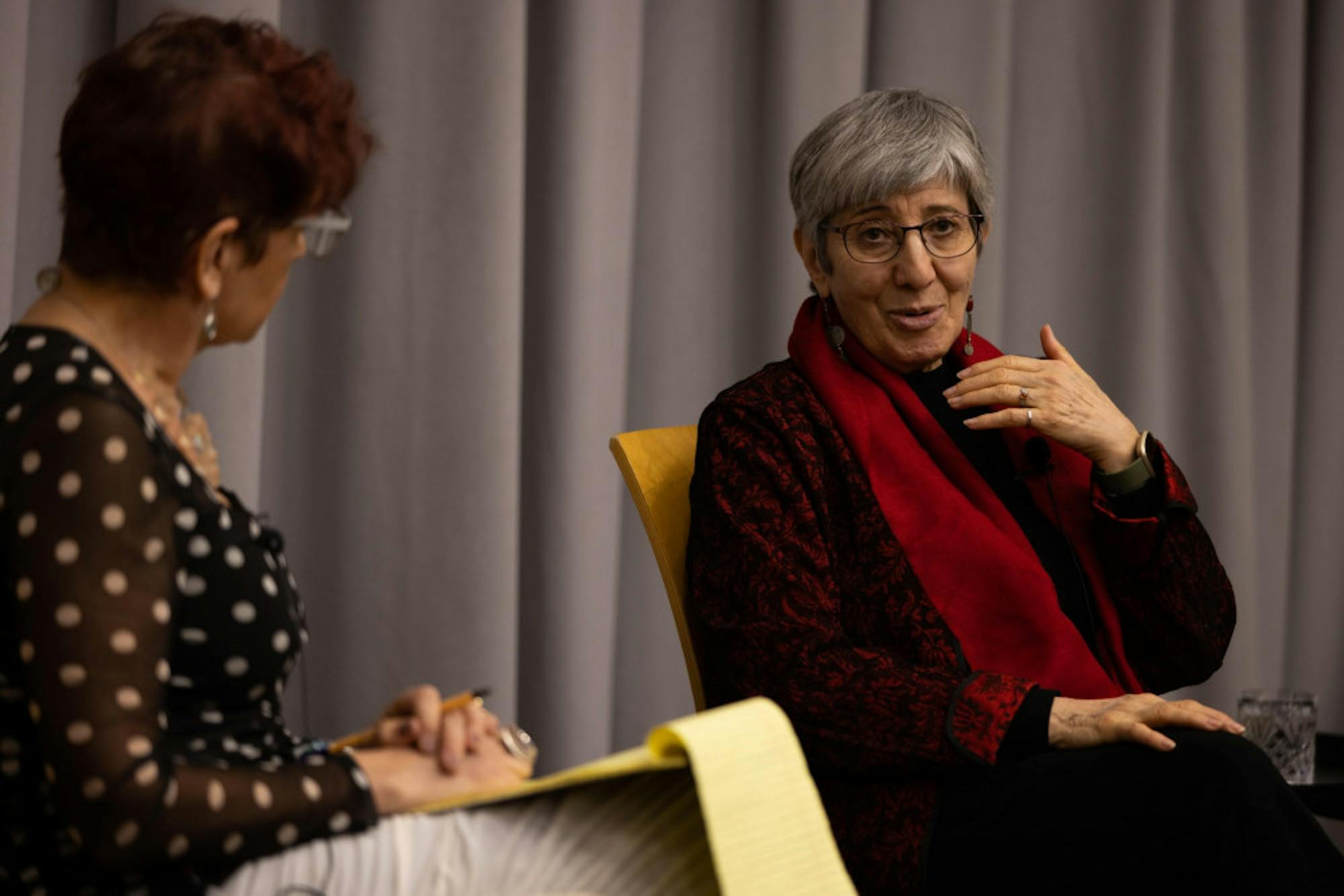Dr. Sima Samar, an Afghan activist and human rights advocate, spoke at an International Women’s Day event on March 8 sponsored by The Fletcher School. Samar, a visiting scholar at Fletcher, spoke about the history and current state of women’s rights in Afghanistan.
Rachel Kyte, dean of The Fletcher School, introduced Samar, calling her “a distinguished scholar [and] a distinguished practitioner on the front lines of what it means to make a difference in girls’ and women’s lives.”
Samar, a medical doctor, served as the first minister of women’s affairs of Afghanistan from Dec. 2001 to July 2002, and was subsequently chairperson of the Afghan Independent Human Rights Commission from 2002 to 2019.
Samar began her discussion by noting that the ministry she once ran now acts to “restrict women’s rights.”
Samar grew up during Afghanistan’s “Decade of Democracy” between 1963 and 1973.
“Women were part of almost every sector,” Samar said. “The country was poor and we didn’t have a lot of school … but it was a better country for all of us, including myself.”
After a coup in 1978 followed by the Soviet invasion in 1979, Samar said women’s rights were rolled back and their education restricted.
Following the Soviet-Afghan war, Samar said, “Forced marriages [and] child marriages [became] a common phenomena.”
“Families were giving their female children [away] in order to reduce the burden on themselves,” she said. “In that time I was running hospitals in schools … [the Taliban] closed all the schools for the girls.”
The Taliban assumed control of the Afghan government in 1996. In addition to legal restrictions, women faced more violence. “Nothing was allowed for women,” Samar said. “They were not allowed to travel, they were beaten up on the street.”
After 9/11, Western military intervention eased restrictions on women’s rights. “In 2002, everybody was promising us that they [would] support us, and the first Ministry of Women’s Affairs was established,” Samar said. “We had [a] constitution in 2004 for the first time in our history. … Women were in business, they were in sports, they were in almost everything.”
Once the United States withdrew troops from Afghanistan, the Taliban regained control of the government and stripped women’s rights once more.
“[Girls] cannot go to school,” Samar said. “The basic rights of women in that country [are being] violated and everybody is watching. … They announced that women [have] to cover themselves; if they don’t, the male member of the family will be arrested.”
Samar, displaying a picture of herself meeting with then-Senator Joe Biden in 2002, said that Democrats and Republicans have personally promised they would not abandon Afghanistan. She offered advice for world leaders to help Afghans.
“My recommendation to the international community [is], I think they can really impose stronger sanctions on [the Taliban], including freezing their assets,” she said. “The [Taliban’s] inhuman policies towards women should not be accepted.”
Following the presentation, Samar spoke on a panel with Kimberly Theidon, Henry J. Leir Chair in International Humanitarian Studies at Fletcher, and Fletcher student Rohini Roy.
Theidon asked Samar to elaborate on how the international community may intervene in Afghanistan without military action.
“The Afghanistan case is a collective failure of all of us,” Samar responded. “I think it requires collective action to overcome the problem that we have. … I think it’s really important that Afghan people are united and they stand against this dictatorship that we have.”
Samar said that if the U.N. Security Council put “every possible pressure, including reminding them that they are committing war crimes and crimes against humanity,” on the Taliban, that the Taliban would be held accountable for their actions.
Theidon then asked about social media, and how states control images in circulation; Samar said that social media has helped to some extent, but noted that the Taliban has created Twitter and Facebook accounts under women’s names to spread news.
“People are arrested because of posting something [critical] if they are in Afghanistan,” Samar said.
Roy asked Samar what living a feminist life means to her and what drives her to continue being an activist; Samar said that many groups, including the Taliban, have tried to kill her.
“I took a lot of risk to be a feminist and to be what I am,” she said. “I am calling for justice and I still call for accountability. … I’m willing to take the risk in order to be able to help the new generation of the country.”






